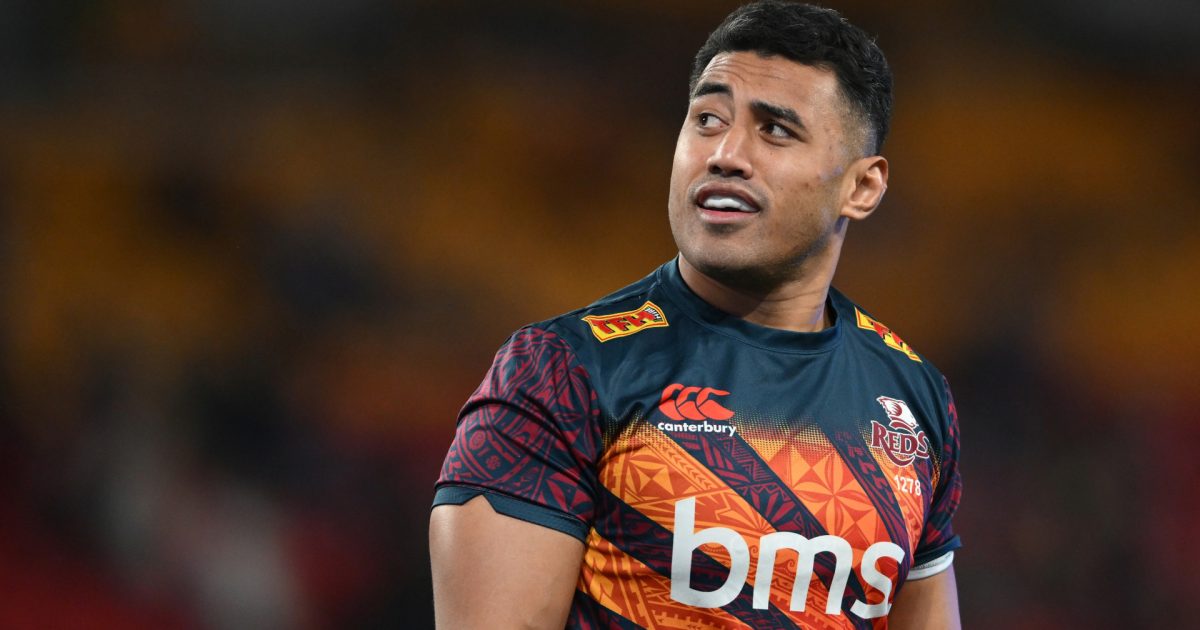Queensland Reds re-sign experienced prop Sef Fa’agase for 2025 season

On Thursday, the Queensland Rugby Union announced that veteran prop Sef Fa’agase has re-signed with the Reds on a new one-year deal. No current Reds player started playing for the club before Fa’agase debuted 10 years ago in 2014.
Fa’agase adds experience and depth to the Queensland Reds’ front-row stocks for next year’s Super Rugby Pacific campaign. With the Reds losing Flying Fijians enforcer Peni Ravai to the Drua, signing Fa’agase is an important bit of business from the club.
The Reds already boast impressive options in the front-row including former All Blacks and current Wallabies prop Alex Hodgman. Another ex-New Zealand international Jeffery Toomaga-Allen is also in the mix, as are Wallabies Zane Nonggorr and Matt Gibbon.
Former Junior Wallabies prop Massimo De Lutiis is also on the books for 2025. De Lutiis made his starting debut for the Reds against Tonga last month, and the youngster is certainly one to watch during next year’s Super season.
“We are all in there competing and working on what we need to do to be better,” Sef Fa’agase said in a statement. “The hunger to perform and make my teammates proud is one of my big drivers.
“I think it’s pretty cool that we have props at the Reds at both ends of their footy journey. You have ‘Mass’ at the start of his career, Zane (Nonggorr) learning in the early stages of his Wallabies career and experienced guys who’ve been at it for a decade or more.
“The young guys, and I include Academy prop Trevor King, are all such sponges and eager to improve. The experience is at the Reds to pass on knowledge which I know is very important because I got those benefits when I first came in as a young prop in 2014.”
What Fa’agase brings to the table for the Reds can’t go unnoticed or unappreciated. The 33-year-old has played 74 games for the Reds which included 10 appearances during the team’s run to the quarter-finals in 2024.
Fa’agase started two matches at loosehead prop against the Chiefs in Brisbane and away to the Melbourne Rebels, but was primarily called upon as an impact player off the bench by Reds head coach Les Kiss.
The experienced campaigner has proven himself a reliable option at both loosehead and tighthead prop, which makes Fa’agase an invaluable addition for a Reds team that continues to build under coach Kiss.
“The style of play, the team culture and the environment around Ballymore were big plusses in wanting to stay at the Reds,” Fa’agase explained.
“I want to be a part of it as long as I can.
“I love the fact the Reds is not about putting people in boxes to mould players in a particular way. The freedom of self-expression is massive,” he added.
“Bring your best ‘you’ within the team environment. I like that.”
The 113-kilogram prop debuted at Super Rugby level for the Reds in 2014 against the Highlanders in Brisbane. Fa’agase has also played three matches for the Landers, and another two for the Melbourne Rebels.
“Fa’agase’s signing is an important one,” coach Les Kiss said.
“Experienced, versatile props like Sef are highly valued in Super Rugby. Having a strong group of props to challenge themselves and keep improving is a core part of the Reds.”


















































